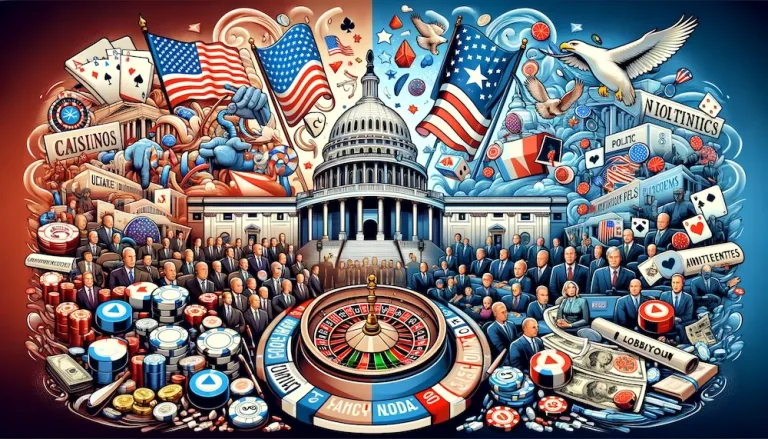Donald Trump’s journey from a real estate magnate and casino owner to the 45th President of the United States is a tale of ambition, controversy, and resilience. Trump’s foray into the casino business in the 1980s and 1990s marked a significant chapter in his career, shaping his public persona and laying the groundwork for his unconventional path to political power.
The Gambler’s Gamble: Trump’s Casino Empire
Trump’s entry into the casino industry began in 1984 with the opening of Trump Plaza Hotel and Casino in Atlantic City. This venture was followed by Trump’s Castle (later renamed Trump Marina) and the iconic Trump Taj Mahal, which opened in 1990 as the world’s largest casino at the time. Trump envisioned Atlantic City as a lucrative alternative to Las Vegas, aiming to transform it into a gambling and entertainment hub on the East Coast.
However, Trump’s casino empire faced challenges from the start. The industry in Atlantic City was fiercely competitive, and Trump’s properties struggled with enormous debts and operational inefficiencies. By the mid-1990s, several of Trump’s casino businesses had filed for bankruptcy, casting a shadow over his reputation as a savvy businessman.
Despite these setbacks, Trump’s tenure in the casino industry was marked by grandeur and an ability to capture the public’s imagination. His casinos were known for their opulence, celebrity appearances, and high-stakes boxing matches, contributing to Trump’s image as a flamboyant and successful entrepreneur.
From the Casino Floor to the Campaign Trail
Trump’s experience in the casino industry and the broader realm of entertainment significantly influenced his approach to politics. His knack for self-promotion, mastery of media coverage, and appeal to celebrity culture became hallmarks of his political campaign.
In 2015, Trump announced his candidacy for the U.S. presidency, leveraging his celebrity status and business background to appeal to voters seeking an outsider candidate. His campaign capitalized on themes of economic revitalization, national security, and a promise to “drain the swamp” of Washington politics, resonating with a significant portion of the American electorate.
The Presidency and Beyond
Trump’s victory in the 2016 presidential election stunned observers around the world, marking one of the most unexpected political upsets in recent history. His tenure as president was characterized by polarizing policies, unconventional leadership style, and a continuous blurring of the lines between politics and entertainment.
As Trump eyes a potential return to the political arena, his casino days serve as a reminder of his ability to rebound from financial lows and navigate the complex interplay between business and public perception. Whether or not he will secure a second term as president remains to be seen, but Trump’s trajectory from casino mogul to the highest office in the U.S. underscores his enduring influence on both the business and political landscapes.
Conclusion
Donald Trump’s transition from the world of casinos to the presidency is a testament to his complex legacy as a businessman and politician. While his casino ventures brought both spectacular successes and notable failures, they undoubtedly contributed to the shaping of a figure who would go on to lead the United States. As Trump possibly prepares for another bid for the presidency, his story continues to fascinate and polarize, reflecting the unpredictable nature of both gambling and politics.

David Garato is a luminary in gaming journalism, renowned for peeling back the curtain on the gaming world with his witty and insightful commentary. A decade into weaving stories from the pixelated edges of indie games to the expansive universes of AAA titles, David’s work is a thrilling blend of analysis and adventure. When not writing, he’s live-streaming, sharing his gaming exploits with an engaged and growing audience. David doesn’t just write about games; he lives them, making him a trusted guide in the gaming community.


